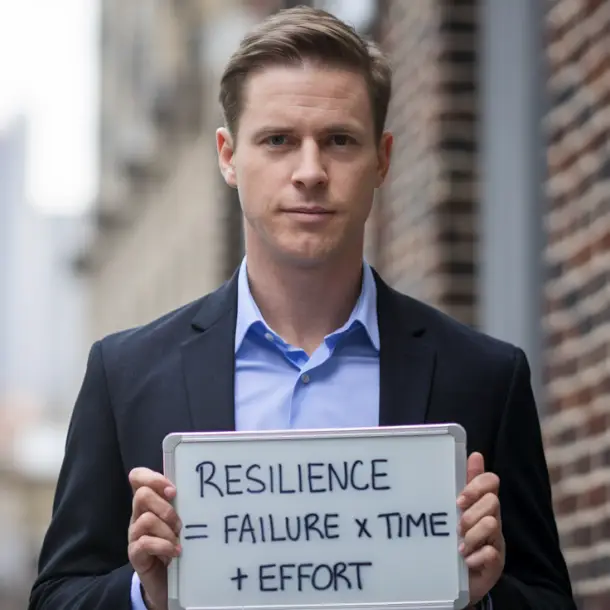
The Ultimate Guide to Founder Networking for First-Time Entrepreneurs
A striking 78% of start-ups credit their success to effective networking. Most first-time founders feel like outsiders at a party where everyone else seems connected.
Our team understands this challenge completely. We've experienced those awkward moments as founders - holding business cards nervously at events, sending LinkedIn messages that got no response. The question lingered: were we networking the right way? Networking goes beyond collecting contacts. The real value lies in building meaningful relationships that can reshape your start-up's path.
This detailed guide to founder networking addresses these challenges. Your struggles with cold outreach or maximizing start-up event opportunities will find solutions here. Our approach shows the exact steps to build authentic connections that propel business development.
Your networking approach needs a fresh perspective? Let's take a closer look.
Why Traditional Networking Advice Fails First-Time Founders
The standard networking advice sounds familiar: "Work the room," "Collect business cards," and "Follow up within 24 hours." Yet first-time founders often find these cookie-cutter tips lead to frustration and missed opportunities. Let's look at why typical networking approaches don't work and what we can do differently.
Common Networking Mistakes New Founders Make
Recent studies reveal that 40% of startup founders find investor relationships stressful. First-time founders repeatedly make these critical mistakes:
They focus only on self-promotion instead of building genuine connections
They see networking as a numbers game rather than relationship building
They don't follow up after their first meetings
They stick with familiar faces at events
They approach conversations trying to make hard sells
The Unique Challenges of Founder Networking
Founder CEOs face unique networking challenges that regular advice doesn't cover. Building connections becomes complex as we juggle multiple roles while carrying our ventures' emotional weight. Studies indicate that relationship building with investors affects 76% of founders' mental health.
Our situation stands apart because we're not just networking to advance our careers. We're birthing and nurturing an idea that means everything to us. This emotional connection can affect our judgment and make building objective relationships difficult.
Reframing Networking as Strategic Relationship Building
We need a new point of view that moves from traditional networking to strategic relationship building. Research shows founders without an original network depend heavily on chance encounters. They often lose financing opportunities to more familiar candidates.
Success comes from understanding that good networking isn't about working every room or gathering business cards. It focuses on building authentic relationships that match our company's vision and values. Quality connections matter more than quantity when you want to support your growth trip.
Strategic relationship building helps us move past superficial exchanges at startup events. This fundamental change creates meaningful strategic collaborations that drive company success while we stay true to ourselves as founders.
Creating Your Founder Networking Strategy
A startup doesn't need to attend every networking event in town to build good connections. Our experience shows that success comes from a well-laid-out approach that matches business goals.
Defining Clear Networking Goals and Metrics
The first step to networking requires clear objectives. Research shows that startups with well-defined networking goals build genuine relationships with industry professionals and learn about market trends. These are our networking targets:
Finding potential investors and mentors
Building relationships with other entrepreneurs
Understanding current industry trends
Connecting with potential customers
Identifying possible collaborators
Identifying Your Most Valuable Network Connections
Quality matters more than quantity in network building. Studies indicate that entrepreneurs should focus on deep, meaningful relationships instead of superficial connections. We look for people whose expertise matches our goals.
Each networking interaction resembles a unique puzzle. People we meet have their own stories, needs, and motivations. Understanding these elements helps us create lasting and meaningful relationships.
Building Your Personal Networking Framework
Your networking framework should be both strategic and authentic. Research shows that 72% of entrepreneurs don't deal very well with mental health compared to 48% of the general population. This makes a supportive network more important than just having a large one.
The "circles of trust" approach works best. Start with your inner circle of 2-15 trusted advisors who know you best. Then expand to a broader network of up to 50 professional connections you can rely on for specific expertise. This method helps maintain meaningful relationships while growing your network effectively.
Note that networking isn't about collecting business cards – it propels development through relationships. Clear goals, valuable connections, and a structured framework create a network that supports your entrepreneurial experience.
Mastering Both Virtual and In-Person Networking
Successful founder networking in our digital age needs a strong presence in both online and physical spaces. Here's a guide to excel in both worlds and create a smooth networking experience.
Using LinkedIn and Online Communities
Online communities have become essential for founder networking. Studies reveal that platforms like GrowthHackers, IndieHackers, and specialized LinkedIn groups are a great way to get connected with peers and industry experts.
LinkedIn success comes from these important activities:
Optimize your profile to reflect your start-up's mission
Share regular updates about your venture's progress
Add value to industry-specific discussions
Join relevant founder groups and share your knowledge
Connect with potential investors and partners through warm introductions
Making the Most of Industry Events and Conferences
Building strong professional relationships still needs face-to-face interactions. Our team creates a strategic plan before each conference. This proven approach works well:
Research attendees and speakers beforehand
Schedule key meetings in advance
Identify relevant side events and networking chances
Prepare targeted conversation points
Plan follow-up strategies
One deal from a trade show can cover your entire attendance investment. Quality conversations matter more than meeting everyone at the event.
Blending Online and Offline Networking Approaches
A powerful networking strategy combines online and offline elements. Digital platforms help nurture relationships that start at in-person events. To cite an instance, see how we stay connected through LinkedIn and participate in online communities after meeting someone at a conference.
Successful entrepreneurs often utilize both channels together. Social media announcements about our event attendance help our network plan face-to-face meetings. This combined approach helps build deeper, more meaningful relationships.
Note that each platform has its unique strengths. Experienced founders often say, "X is a great cocktail party, Facebook is for friends and family, and LinkedIn is the office". Understanding these differences helps tailor our networking approach to each environment.
Building Authentic Relationships That Drive Growth
Success in founder networking happens through building lasting relationships that propel development, not just making superficial connections. Let's look at ways to build authentic partnerships that last.
Moving Beyond Transactional Networking
Building strong business relationships needs more than just swapping business cards. Studies show that authentic connections guide us toward increased loyalty and repeat business opportunities. These proven principles help create authentic networking:
Be genuinely interested in others' success
Share relevant insights and resources freely
Focus on long-term relationship building
Demonstrate consistent value
Practice active listening
Creating Win-Win Relationships
The most powerful networking emerges from focusing on mutual benefit. Successful networkers know their relationships' strength depends on what they give, not just what they receive.
Each interaction should start with creating value first. Helping others selflessly has become one of the biggest drivers for new business opportunities. This mindset turns casual connections into trusted partnerships that can last entire careers.
Following Up and Nurturing Connections
The real value of networking lies in the follow-up - consistent effort nurtures relationships over time. Contact within 24-48 hours after the original meeting is significant. The quality of each interaction matters more than timing.
Our relationship nurturing focuses on three key areas:
Regular Communication: Consistent check-ins keep connections strong with updates and insights that matter.
Value Addition: Relevant industry insights and helpful resources flow regularly.
Personal Touch: Each person receives communication tailored to their interests and goals.
Note that relationships don't grow in bursts between sales cycles. They develop through everyday moments - regular check-ins, sharing relevant content, and steady participation show commitment to long-term relationships instead of quick wins.
This authentic relationship-building approach transforms networks from contact lists into vibrant communities of supporters, mentors, and collaborators. First-time founders find this especially helpful, as studies show 72% face mental health challenges compared to 48% of the general population.
Advanced Networking Tactics for Different Founder Stages
The start-up networking experience takes an unexpected turn when we look at how networking needs change as your company grows. Many founders follow Silicon Valley's conventional wisdom about rapid scaling. However, research shows that scaling too early in the first 12 months substantially increases the risk of start-up failure.
Pre-Launch Networking Priorities
The pre-launch phase needs the right foundation. Companies experiencing rapid growth deal with constant challenges. Investors blame 65% of failures on people and organizational issues. This stage requires focus on:
Building relationships with potential mentors and advisors
Connecting with early adopters and beta users
Establishing connections with industry experts
Creating relationships with potential investors
Developing partnerships with complementary businesses
Growth Stage Relationship Building
The growth phase demands a more mature networking approach. Research suggests that scaling works differently for each company. Growth-stage networking success depends on answering these vital questions about your business:
Networking Focus | Key Questions to Address |
|---|---|
Customer Relations | Who is our ideal customer? |
Value Proposition | What unique value can we offer? |
Market Access | How do customers find us? |
Revenue Model | How can we monetize effectively? |
This stage emphasizes building deeper relationships rather than expanding the network. Successful start-ups put more resources into creating repeatable sales models and defining clear roles and responsibilities.
Scaling Your Network as You Scale Your Start-up
Scaling brings new insights. We found that "scaling is not always about doing more—it's often about doing less and focusing on what works". Companies that struggled with rapid growth usually lacked organizational readiness or capacity to scale.
The scaling phase focuses on three key areas:
Internal Communication: Your team's commitment to the mission helps maintain enthusiasm during growth.
Mutually beneficial alliances: Looking beyond personal networks builds relationships that match your company's values.
Resource Management: Scaling affects supply chains, efficiencies, and vendor relationships.
It's worth mentioning that successful scaling needs ethical decisions alongside financial growth. The scaling phase requires careful attention to networking approaches.
Conclusion
Meaningful relationships are the life-blood of successful founder networking. This piece shows that authentic connections, strategic planning, and consistent nurturing matter more than collecting business cards or working every room.
The evolution of networking parallels our start-up's growth - from pre-launch relationship building to scaling partnerships that line up with our company values. Founders who prioritize quality connections over quantity achieve better long-term results and encounter fewer scaling challenges.
Note that effective networking isn't about following outdated rules or chasing every chance. Genuine relationships, built through both digital and in-person channels, create the strong foundation needed for start-up success. Your network can grow into a thriving community that supports your entrepreneurial experience when you start small and stay authentic.
